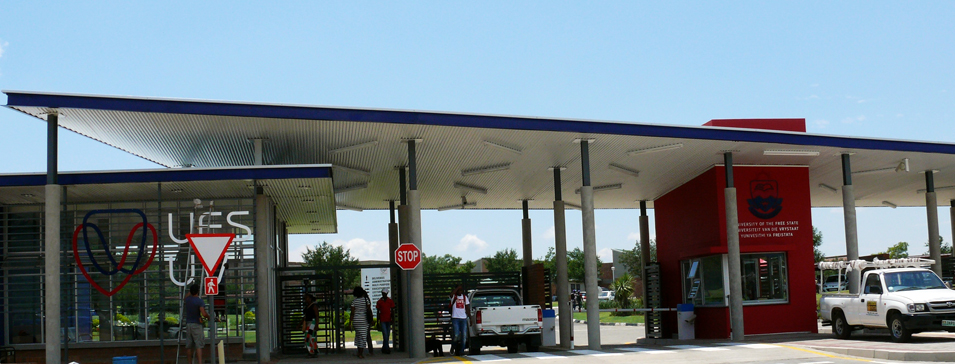
The greatly-anticipated entrance proudly welcomes everyone onto the Qwaqwa campus.
The new entrance to the Qwaqwa Campus gleams and shimmers in the morning sun after almost a year of construction.
Meanwhile, construction of the new 150-bed student residence and Geography/Physics Building has just commenced.
“The new residence comprises four double-storey and two triple-storey sections, one caretaker's house and a service room,” said Makere Mofokeng from Physical Resources. “The Geography/Physics Building, situated just opposite the Faculty of Natural and Agricultural Sciences, is a double-storey and it comprises a boardroom, nine offices, 20-seater chemical physics lab, 20-seater postgraduate physics lab, 20-seater physics instrument research lab, 20-seater dry physics lab, darkroom, 180-seater lecture hall, two storage facilities and ablution facilities on the ground level.
“The following facilities are on the first floor: boardroom, 10 offices, 360-seater lecture theatre, 102-seater geography lab, 198-seater geography lab, 20-seater postgraduate geography lab, three storage facilities and ablutions,” Mofokeng said.
The Geography/Physics building is expected to be completed in December 2014 and the new residence in February 2015.